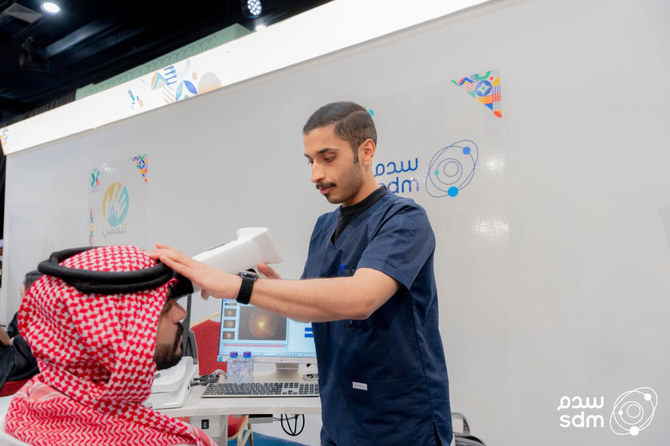RIYADH: Healthcare startup SDM is using artificial intelligence to make healthcare efficient, accessible and potentially life-saving by detecting the stages of chronic diseases such as diabetes through retinal imaging analysis of the eye.
“When you hear the phrase ‘your eye is a window to your body,’ it’s actually the retina that is the window to any systemic diseases,” Dr. Selwa Al-Hazzaa, CEO and founder of SDM, told Arab News.
Since launching in 2018, SDM has worked on filling the gaps in the health sector as a developer of digital technology solutions to promote well-being and accessibility in remote communities across the Kingdom and beyond.
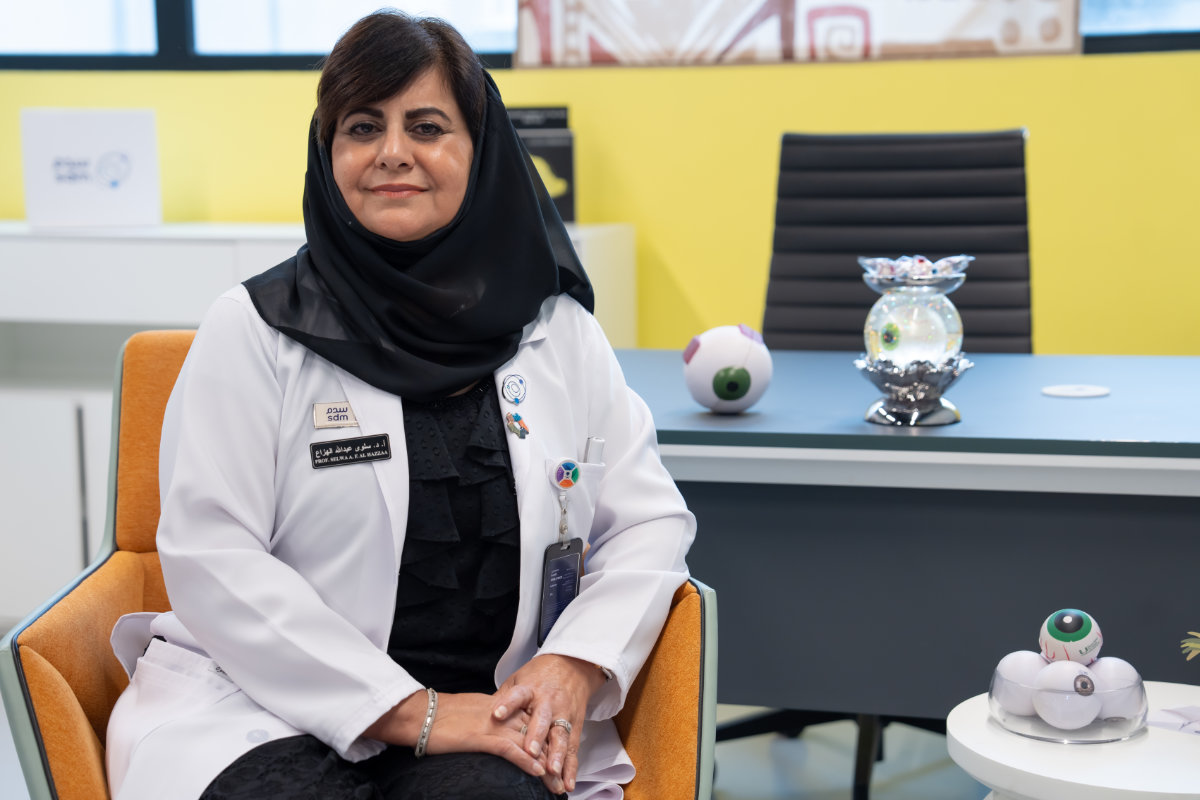
Dr. Selwa Al-Hazzaa, CEO and founder of SDM. (Supplied)
Al-Hazzaa, along with her co-founder and managing director, Naif Al-Obaidallah, have had a longstanding passion for making healthcare accessible and low-cost, with the belief that “everyone should have access to healthcare.”
Al-Obaidallah told Arab News: “Everyone should have a right to see a doctor or get treated.”
A trailblazer in the field of AI medicine, SDM combines AI technology with Al-Hazzaa’s 40 years of experience, partnering with nonprofits to carry out a comprehensive mass detection of chronic diseases through the retina.
“I had a dream that I wanted patients to be examined and get good quality care without actually coming to Selwa Al-Hazzaa in a specialized hospital,” she said. “I kept asking myself: Why can’t I take my experience, put it in a package, and give it to the community?
“By the time many patients come to me, it’s already too late and they’re blind. There had to be a way that I could reach the community. And this was when SDM was born.”
The result was an accessible and automated healthcare service that does not require physicians to be on site, thereby reaching tens of thousands of people across the Kingdom.
The World Health Organization estimates there are 7 million diabetics in Saudi Arabia. Within the region, eye disease is the main cause of blindness and 10-12 percent of the population in Saudi Arabia with diabetic eye disease go blind if the condition is not treated.
Only an estimated 24 percent of patients have been screened for diabetic eye disease in Saudi Arabia, while 76 percent remain unexamined.
The work SDM is doing highlights the impact AI can have on healthcare and the mass outreach of health diagnostics at reduced cost and increased accuracy. SDM has already served more than 30,000 patients in more than 13 centers around the Kingdom over the last two years.
“Our focuses are specifically on rural areas, places that don’t have access to highly specialized doctors,” said Al-Obaidallah. “In a given day, sometimes we’ve seen over 150 patients. And that’s all using AI and deep learning. It’s a very trusted way of diagnosing.”
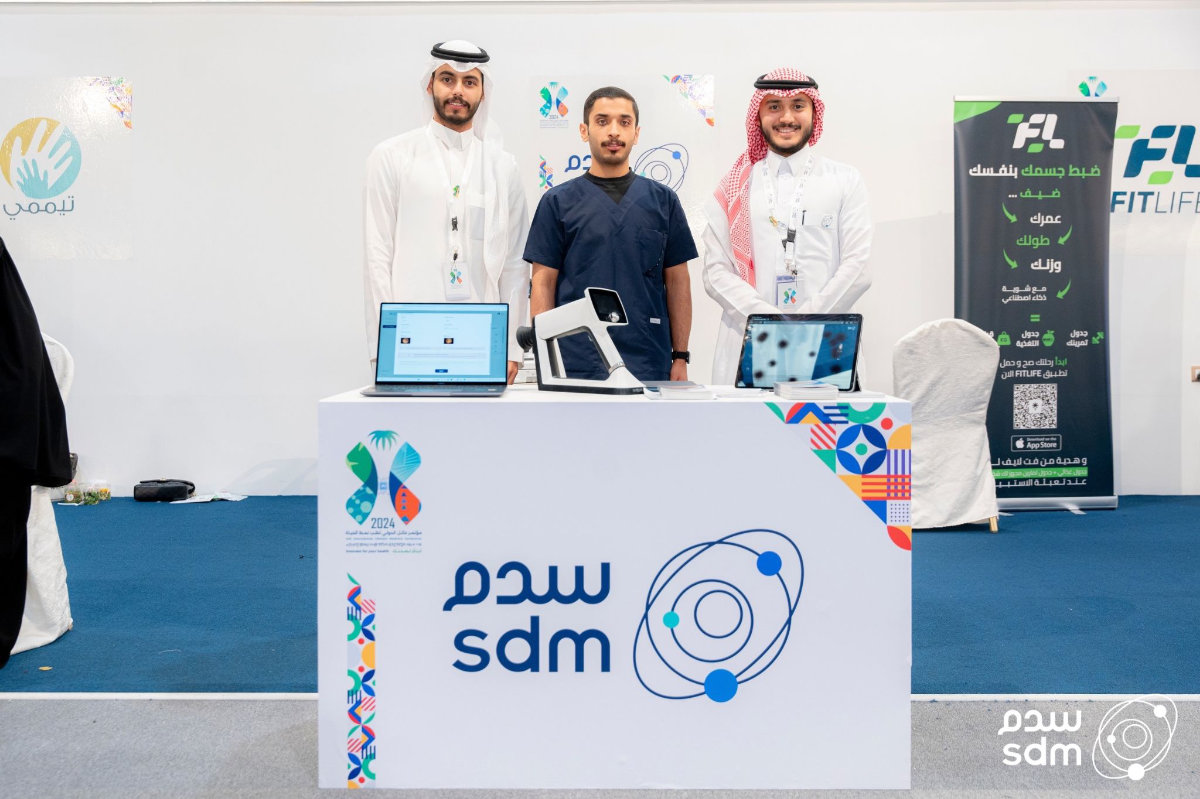
Unlike traditional healthcare methods, SDM has developed technology to make detection automated, instant and seamless with results reaching the patient in a matter of minutes, clearing obstacles to treatment. (Supplied)
SDM has benefited from the support of “success partners” at NEOM, the Ministry of Communication and Information Technology, the King Abdullah University of Science and Technology, Saudi Telecom, Al-Faisal University and business incubator “The Garage.”
In order to grasp the revolutionary impact of what SDM is doing, it is necessary to understand how disease detection is traditionally conducted.
At the Kingdom’s diabetic centers, patients are typically seen by pathologists, endocrinologists, cardiologists and podiatrists. However, patients do not usually see ophthalmologists, who are technically surgeons and found in hospitals.
As a result, eye disease screening is often overlooked, potentially leading to complications down the line.
“The patient traditionally would only be sent to take the photo of the retina if they complained. But the symptoms only come in diabetes in the late stages,” said Al-Hazzaa.
“They would save the photos until the ophthalmologist came to visit, which would be maybe once a month or twice a month, depending on the collaboration with the ophthalmology clinics.”
Opinion
This section contains relevant reference points, placed in (Opinion field)
Unlike traditional healthcare methods, SDM has developed technology to make detection automated, instant and seamless with results reaching the patient in a matter of minutes, clearing obstacles to treatment.
When a patient comes into an SDM clinic, a trained technician photographs the back of their eye using a specialized instrument called a fundus camera. The image is then sent via a secure cloud for AI diagnostics.
“Within minutes, the report comes out either in English, which is then integrated for the doctor, and in Arabic, where the patient is actually given the PDF report in his or her hand,” said Al-Hazzaa.
“It is totally run by technicians, photographers, nurses, even primary care physicians — all these healthcare personnel, who have no experience whatsoever with eye diseases.”
Al-Hazzaa underlined the ease this technology provides for patients, healthcare providers who are taking the photos and the endocrinologists who see the patients following the examination.
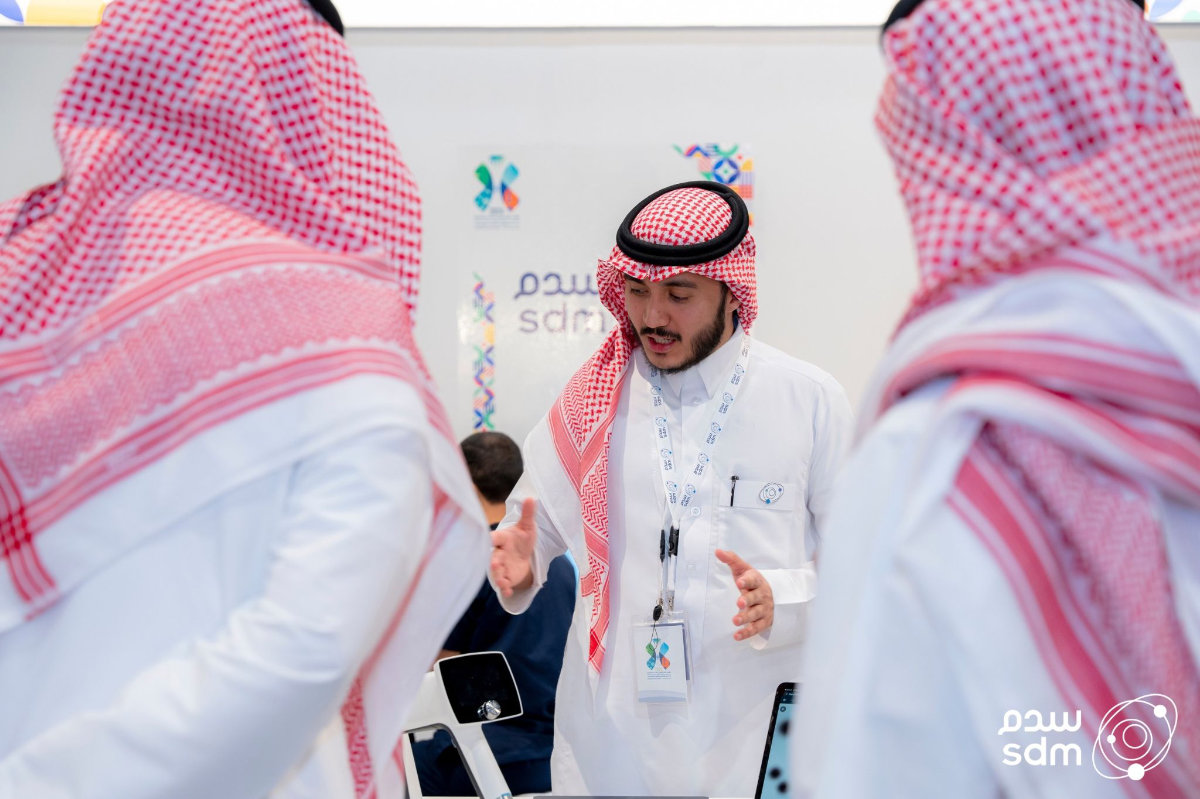
The technology outperforms even the most experienced physicians in detecting problems, according to the SDM. (Supplied)
In terms of accuracy, Al-Hazzaa said the technology outperforms even the most experienced physicians in detecting problems.
“I can tell you the algorithmic solution is now much more sensitive than me,” she said. “The best I could do was 93 percent. The AI solution has actually reached over 95 percent.
“The unique thing is, not only are you using automation, which is convenient for the patient, convenient for the healthcare provider, but you’re also introducing automation at a sensitivity that is much greater than your board-certified retinologist, not just ophthalmologist.”
Like workers across many sectors, the uptake of AI tools among physicians has been slow to catch on, as many fear that mass adoption could ultimately cost jobs.
“They thought: ‘Here’s a machine that’s much more accurate than us, that’s faster than us, and it’s going to take our place.’ They were very reluctant,” said Al-Hazzaa.
“After one year of being in the diabetic center, the ophthalmologist actually came back to me and said: ‘Dr. Selwa, thank you. You improved our surgical skills because you have taken all the routine repetitive exams that we are no longer interested in’.”
Diabetic eye disease is not the only condition SDM is able to detect through the AI analysis of retinal imaging.
“With the picture of the retina, which is the back of the eye, you can detect at least 20 diseases,” said Al-Obaidallah.
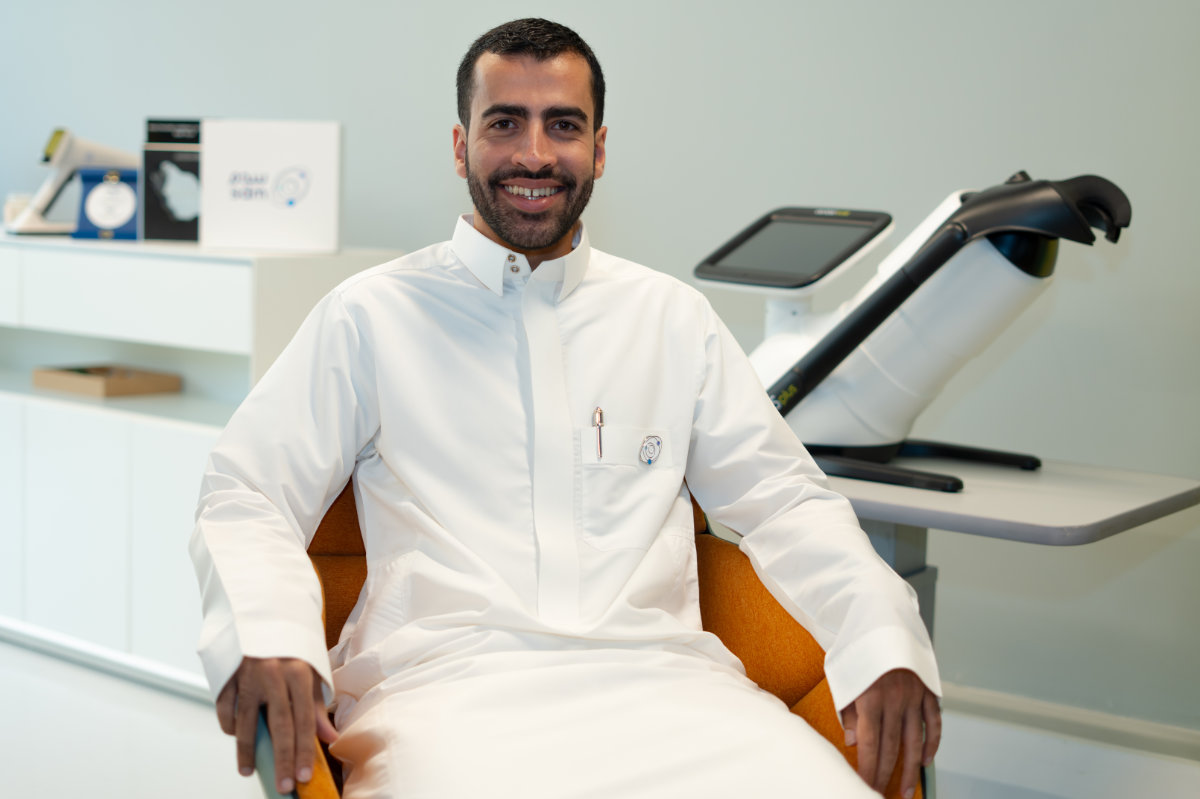
Naif Al-Obaidallah, co-founder and managing director of SDM. (Supplied)
“We’re working on a lot of other diseases, whether it is glaucoma, hypertension, Alzheimer’s, which can be diagnosed and detected with a picture of your eye. It’s mind-boggling to see how the eyes can basically tell you everything about your body. And it’s done in a very basic way. There is no surgery needed.”
As part of its mission to make healthcare more accessible, SDM is working with a mobile diagnostics center in Madinah to reach patients in rural areas.
After some initial delay in securing regulatory approval, SDM’s innovative technology has since rapidly advanced.
“Artificial intelligence as a whole, maybe in some industries, it’s there and it’s in use,” said Al-Obaidallah. “But in healthcare, it’s still fairly new. So, when we work on something, we’re basically paving the way.
“We worked with the Council of Health Insurance on coding, the use of artificial intelligence in healthcare, specifically, in our exam, in our product.
“We were basically the first company to work with the CHI on the new Saudi billing system, to introduce artificial intelligence as a billing code for hospitals and insurance companies to use.”
However, all of SDM’s services are provided free of charge in partnership with nonprofits.
“Everything is free. No one pays anything,” said Al-Obaidallah. “Our goal is for patients to have the right to diagnosis of chronic diseases.”
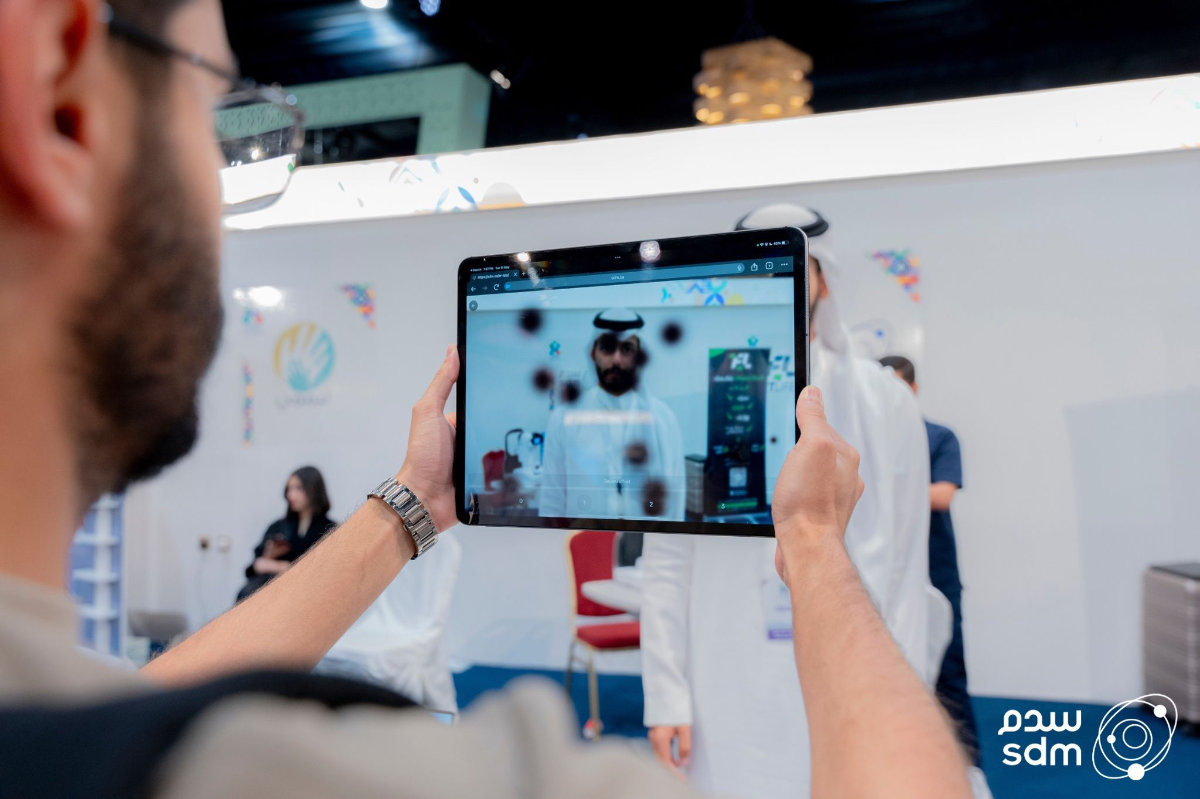
As part of its mission to make healthcare more accessible, SDM is working with a mobile diagnostics center in Madinah to reach patients in rural areas. (Supplied)
Beyond diagnostics, SDM also recently announced new software utilizing generative AI. “It’s basically a large language model, an LLM, which is a very hot topic,” said Al-Obaidallah.
“Recently, everyone’s been talking about generative AI. So, we’ve worked on a generative AI model that is more of a chatbot that you ask any question related to diabetes. And it would basically give you an answer.
“We’ve been feeding it with journals, publications, specifically, chosen by experts in the field to make sure that this gives you clear and straight answers.”
Looking five years into the future, Al-Hazzaa hopes to move from predictive AI to generative AI using LLMs.
“I know with confidence that SDM will not only be treating diabetic diseases, but we will be going into other chronic diseases such as predicting hypertension, stroke and Alzheimer’s,” she said.
“We will also be looking into other chronic ophthalmology diseases such as glaucoma, such as age-related macular degeneration.”






